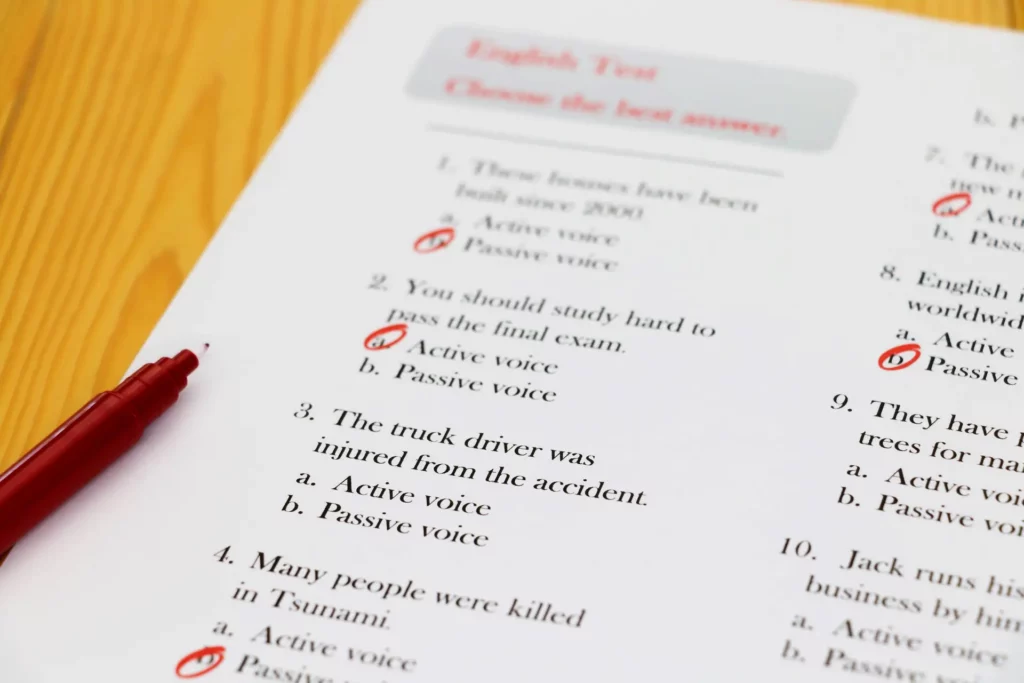
Passive voice is a grammatical construction in which the subject of a sentence undergoes or receives the action expressed by the verb. In sentences written in the passive voice, the emphasis is on the recipient of the action rather than the doer. This often results in a structure that begins with the object of the action or the receiver of the action.
Key features of passive voice:
- Subject Receives the Action: In a passive voice sentence, the subject is the recipient or target of the action expressed by the verb. The doer of the action (if mentioned) typically appears in a prepositional phrase or may be omitted altogether.
Example: The mouse was chased by the cat. In this sentence, “The mouse” is the subject receiving the action, and “was chased by the cat” indicates the doer of the action.
- Object-Verb-Subject Structure: Passive voice sentences often follow an object-verb-subject structure, where the object receiving the action is placed at the beginning of the sentence.
Example: Object (The proposal) – Verb (was reviewed by the committee) – Subject (the committee).
- Use of the Verb “To Be”: The passive voice frequently involves the use of the auxiliary verb “to be” (e.g., is, am, are, was, were, been) along with the past participle of the main verb.
Example: The report was prepared by the team.
- Emphasis on the Action’s Result: The passive voice is often used when the speaker wants to emphasize the action’s result or impact rather than the doer’s identity.
Example: The novel was written in the 19th century. The focus is on the fact that the novel was written, not necessarily on who wrote it.
While passive voice can be appropriate in certain contexts, such as when the doer of the action is unknown or less important, active voice is generally preferred for its clarity and directness in communication. Writers often choose between active and passive voice based on the context and their specific communicative goals.





